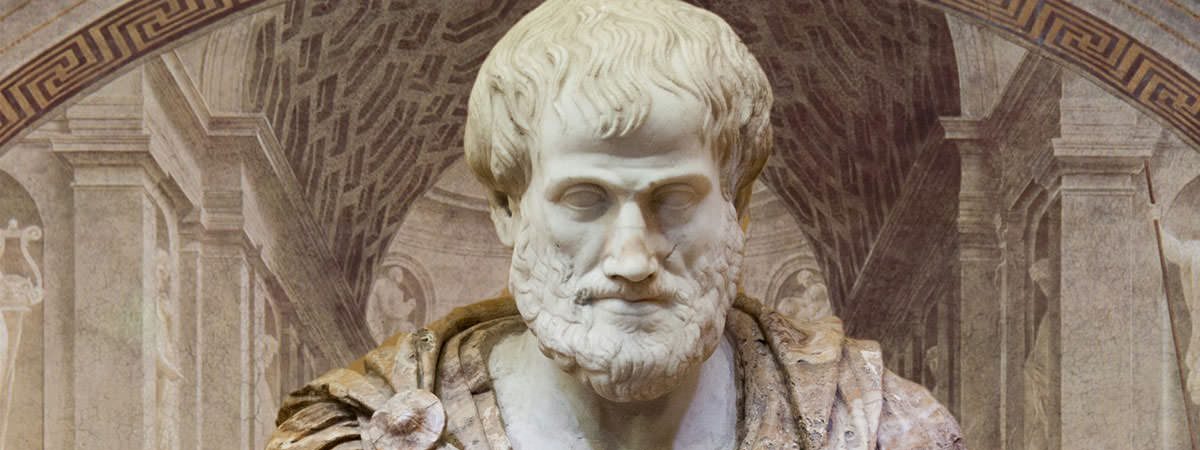Aristotle was an ancient Greek philosopher and scientist who is widely regarded as one of the most influential people in history. Born in Stagira, Greece, Aristotle lost both his parents at the age of 13 and consequently the husband of his elder sister became his guardian. From the age of 17 to 37, Aristotle remained at the Academy of Plato in Athens where he first studied and then became a teacher. After this, Aristotle was invited by his childhood friend King Philip II of Macedonia to serve as a tutor for his son, the future Alexander the Great. After Alexander succeeded Philip II, Aristotle returned to Athens to found his own school, the Lyceum. Aristotle spent most of the remainder of his life working as a teacher, researcher and writer at the Lyceum. In 322 BC, he died in Chalcis at the age of 63 due to natural causes. Know more about the family, life, childhood, education, career, marriage and death of Aristotle through his biography.
Early Life And Family
Aristotle’s name translates to “the best purpose” in ancient Greek. He was born in 384 BC in the ancient Greek city of Stagira, located on the Chalcidic peninsula in central Macedonia. His birthplace is about 34 miles (55 km) east of modern-day Thessaloniki. Aristotle was the son of Nicomachus, who was a doctor by profession. His mother, Phaestis, came from Chalcis in Euboea. Nicomachus was the personal physician to King Amyntas of Macedon, the grandfather of Alexander the Great. Due to this, it is speculated that Aristotle probably spent a part of his childhood within the Macedonian palace. Whether this is true or not, it is almost certain the Aristotle was friendly with Philip, son of king Amyntas. The two were almost exactly the same age.
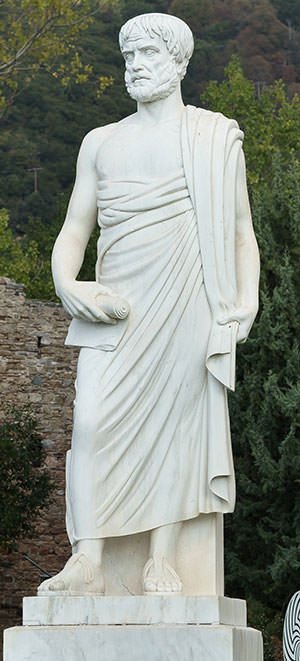
Aristotle’s childhood was a difficult period for him since both of his parents died when he was around 13 years old. Following this, Proxenus of Atarneus became his guardian. Proxenus was the husband of Aristotle’s older sister, Arimneste. He taught Aristotle Greek, rhetoric and poetry. This was in addition to the training in medicine that Aristotle’s father had given him thinking that his son would follow his profession.
Education
In 367 BC, at the age of 17, Aristotle moved to Athens to continue his education at Plato’s Academy, which was the premier educational institution of ancient Greece. Here Aristotle met Plato, who is regarded as a pivotal figure in the history of western philosophy. Aristotle always acknowledged a great debt to Plato, whose teachings contributed greatly in shaping Aristotle’s works. After being a student, Aristotle became a teacher at the Academy, where he would remain for 20 years until the age of 37.
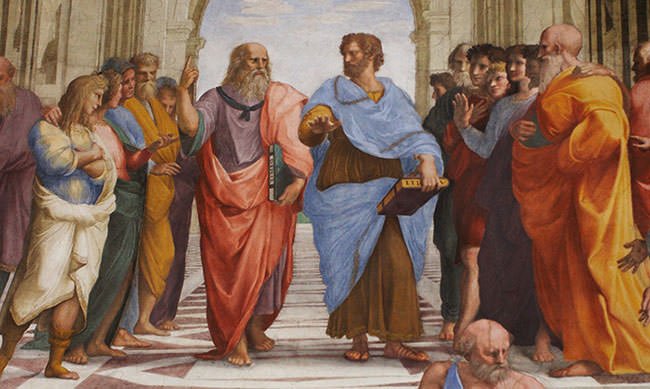
While Aristotle was at the Academy, King Philip II of Macedonia waged war on a number of Greek city-states including Athens. Aristotle left Athens around 348 BC, shortly after the death of Plato. The reason for his departure that has been cited is that he was disappointed with the direction of the Academy after control passed from Plato to his nephew Speusippus. It is also speculated that Aristotle might have feared the anti-Macedonian sentiments in Athens at the time due to the conquests of his friend Philip II. Due to this, some historians believe that Aristotle might have left Athens before Plato died.
Career
After he left Athens, Aristotle moved to the court of Hermias of Atarneus in Asia Minor. He was accompanied by Xenocrates at this time. It is likely that Aristotle was acting as an ambassador for Philip II and he certainly was treated as such by Hermias. It was during this phase of his life that Aristotle met Pythias, the niece and adopted daughter of Hermias. Aristotle eventually married Pythias and they both had a daughter together, who they also named Pythias.
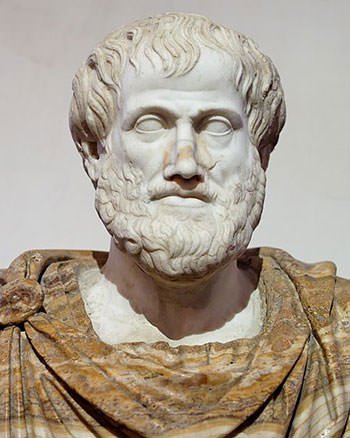
In the Academy of Assos, Aristotle became a chief to a group of philosophers, and together with them, he made innovative observations on zoology and biology. Aristotle’s stay in Assos was ended as the Persians attacked the town. Hermias was captured and executed; but Aristotle managed to escape. While on his way to Macedonia, Aristotle stopped on the island of Lesbos for about a year. Here he carried out extensive scientific research, particularly in zoology and marine biology.
In 343 BC, Philip II of Macedon invited Aristotle to become the official tutor of his son, the future Alexander the Great. Aristotle quickly found the right footing in this new role and he was also appointed as the head of the Royal Academy of Macedon. Both Philip and Alexander held Aristotle in high regards and made sure that he was generously compensated for his work. Apart from Alexander, Aristotle also tutored two more future kings, Cassander and Ptolemy.
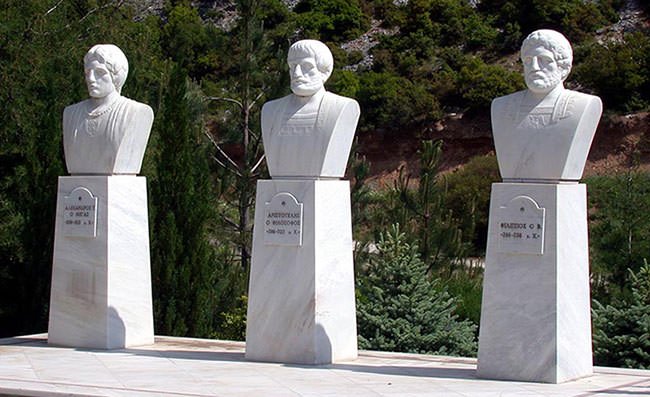
Among other things, as tutor to Alexander, Aristotle encouraged him towards eastern conquest. In one famous example, he counsels Alexander to be “a leader to the Greeks and a despot to the barbarians, to look after the former as after friends and relatives, and to deal with the latter as with beasts or plants”. Barbarians in this quote refers the Persians.
In 336 BC, Alexander became king upon his father’s death. The following year, Aristotle returned to Athens to establish his own school there with Alexander’s permission. In 335 BC, Aristotle founded his own school, the Lyceum, in Athens. The Lyceum became a competing institution to the Academy. While the Academy had always been narrow in its interests, the Lyceum under Aristotle pursued a broader range of subjects. Among other things, Aristotle gave prominence to the detailed study of nature.
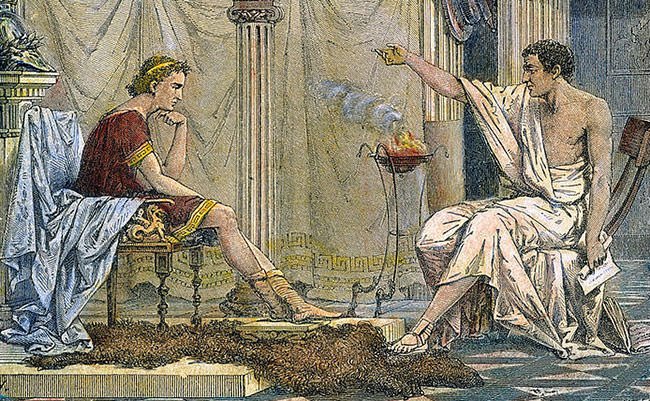
Aristotle spent most of the remainder of his life working as a teacher, researcher and writer at the Lyceum. During his 12 years there, Aristotle composed numerous books and works. Most of these are in the form of treatises and not meant for widespread publication. Historians also believe his works to be lecture aids for students. Some of the major fields which Aristotle studied and contributed to include logic, metaphysics, mathematics, physics, biology, botany, ethics, politics, dance, theatre, medicine and agriculture.
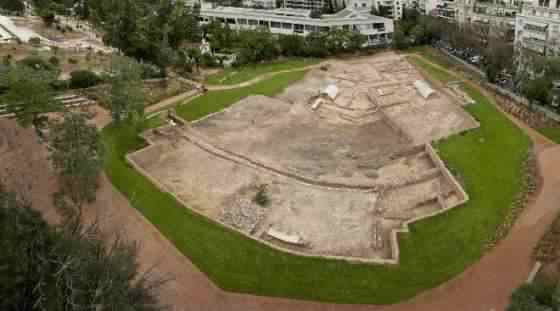
In 335 BC, the same year that he opened the Lyceum, Aristotle’s wife Pythias died. He did not marry again after the death of his wife but he did form a relationship with Herpyllis, who came from his home town of Stagirus. Some historians believe that Herpyllis may have been Aristotle’s maid, who was granted to him by the Macedonian court. Aristotle even had a son with her whom he named Nicomachus after his father.
Death
After the death of Alexander the Great in 323 BC, the pro-Macedonian government was overthrown in Athens and anti-Macedonian sentiment rose. Aristotle was charged with impiety for his association with Alexander and the Macedonian court. To escape persecution, Aristotle fled to Chalcis. It is believed that he said that he did not wish the city that had executed Socrates “to sin twice against philosophy”. In 322 BC, the year following his flight, Aristotle died in Chalcis at the age of 63 due to natural causes after contacting a disease of the digestive organs. He named his student Antipater as his chief executive and asked in his will to be buried next to his wife.
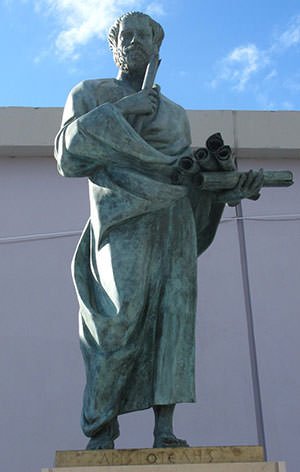
The period towards the end of his life is known to be one when the bond of Aristotle and Alexander suffered from an irreversible strain. This was mainly due to Alexander’s relationship with the Persians. In fact, one of the most astonishing claims made six years after Alexander’s death suspects Aristotle of playing a role in it, although evidence to support this is scarce and unreliable.
In the century following his death, Aristotle’s works lost relevance and fell out of use. They were eventually revived by the first century and went on to lay the foundations of of many fields including philosophy. Till date, Aristotle is considered to be one of the greatest philosophers to have ever lived.

